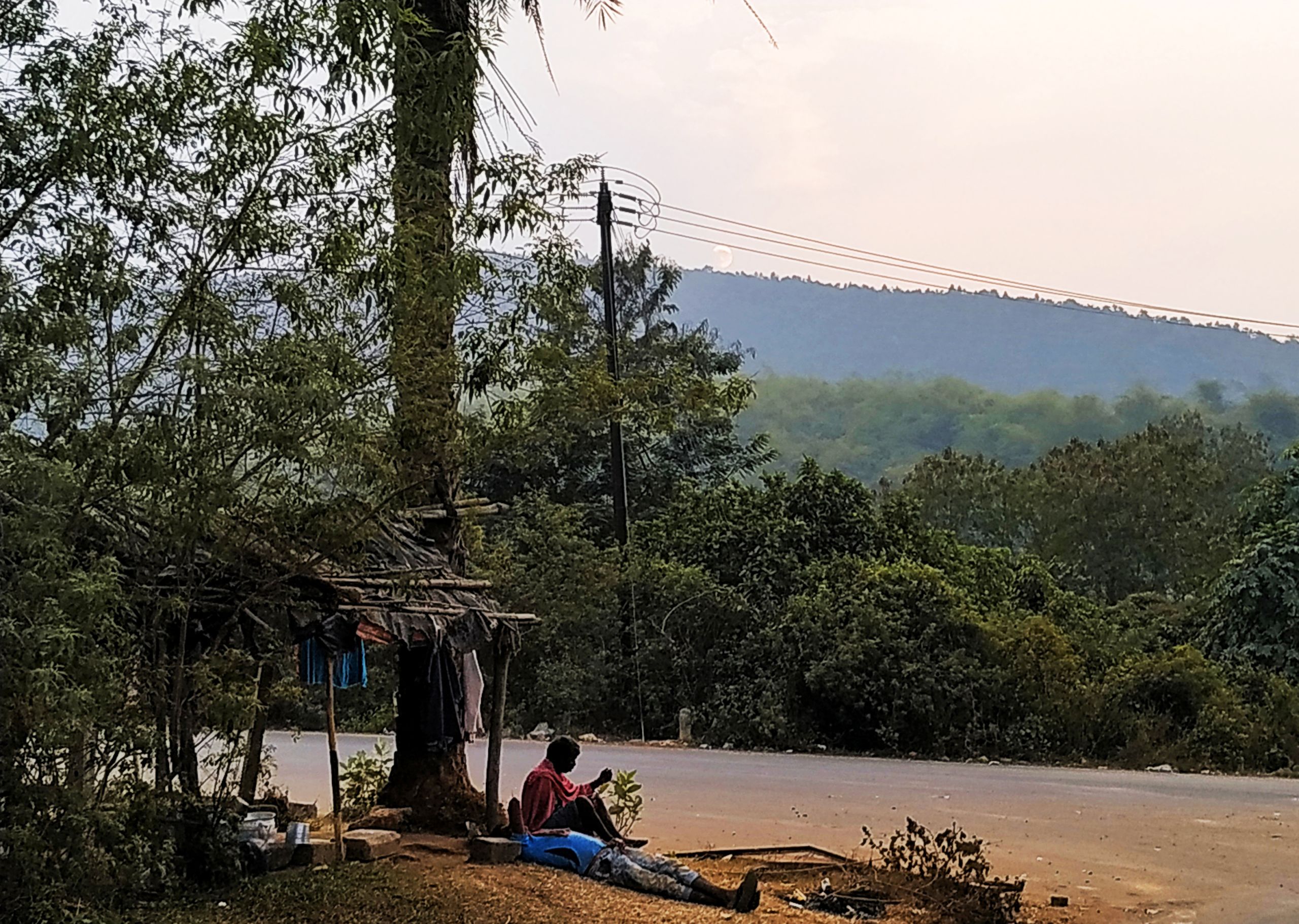COVID-19 deprived
people of their
most important
identity – Names
A handiya seller describes
how the pandemic changed
her life as she sells alcohol away
from her village
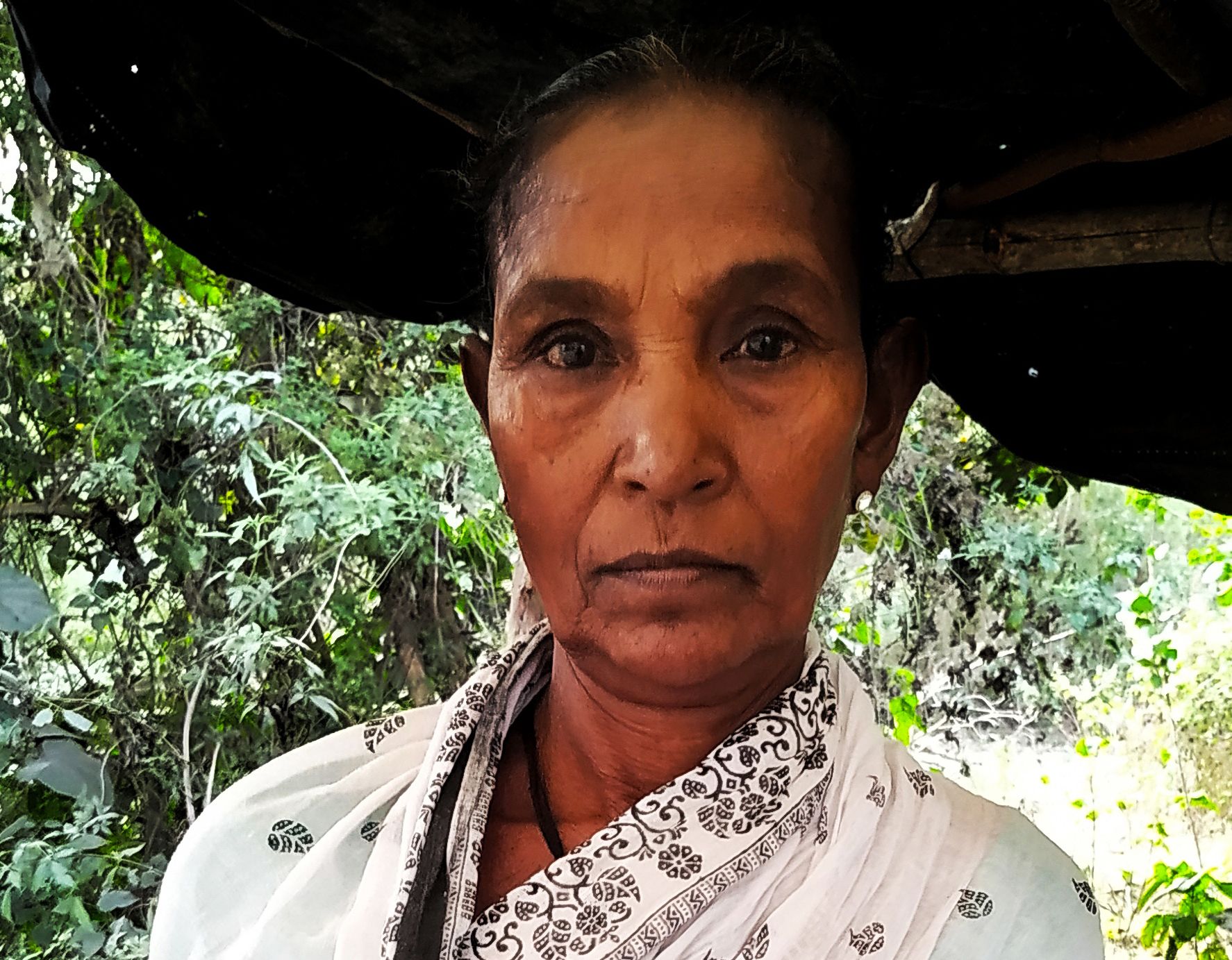
“How much for a bowl?”
“Five Rupees,” she answered. With Dalma hills in the background, an old lady sat selling handiya (or handia), Jharkhand’s local beer. The pandemic forced every town and city in the state to hit the pause button and declare lockdown.
Now that ‘unlock’ has begun, little corners outside the city are witnessing opening of small shops – hoping for clients, hoping for money. One of them was this lady – clad in a white saree, pouring the alcohol in a steel bowl and readjusting her set of containers at the shack.
As she talked, she had her first customer of the day at 5 p.m. “Rs. 5 for a small bowl, Rs. 10 for a large bowl and grams are complimentary,” she said. But when I asked her name, an abstruse pause followed. “What would you do knowing my name?” she replied, smiling.
‘All my clients were gone within a month’
Handiya is a local alcohol popular among Adivasis in Jharkhand, Odisha and West Bengal. It is made with rice and ranu, a hard pebble like tablet made up of rice and herbs such as Bakhar and Mulikia. Some tribes consider this drink sacred and consume it during festivals such as Sendra, Karma Pooja and Tusu.
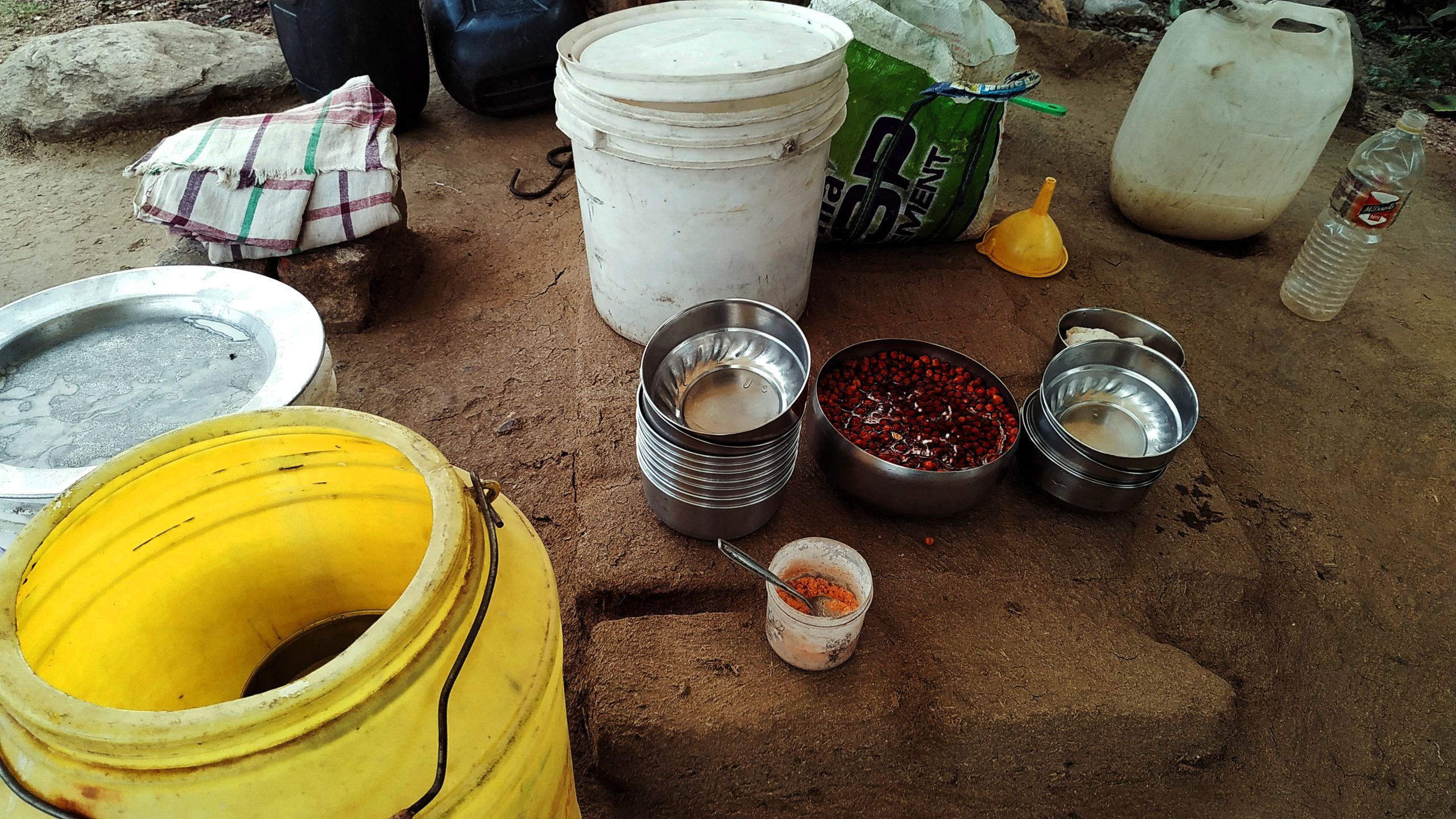
The 'sacred' drink with grams in the Handiya Shop
The 'sacred' drink with grams in the Handiya Shop
On normal days, it is just alcohol. It’s biggest client base – men. “Chhele gula gali galach kore! (The men who drink her curse and abuse),” she said. Nevertheless, they kept her ramshackle of a shop running, and the sales were more in summer than in winter.
On March 23, Prime Minister Narendra Modi declared a nationwide lockdown with just four hours to spare. The people who felt the abstruse dirigisme the hardest were the poor.
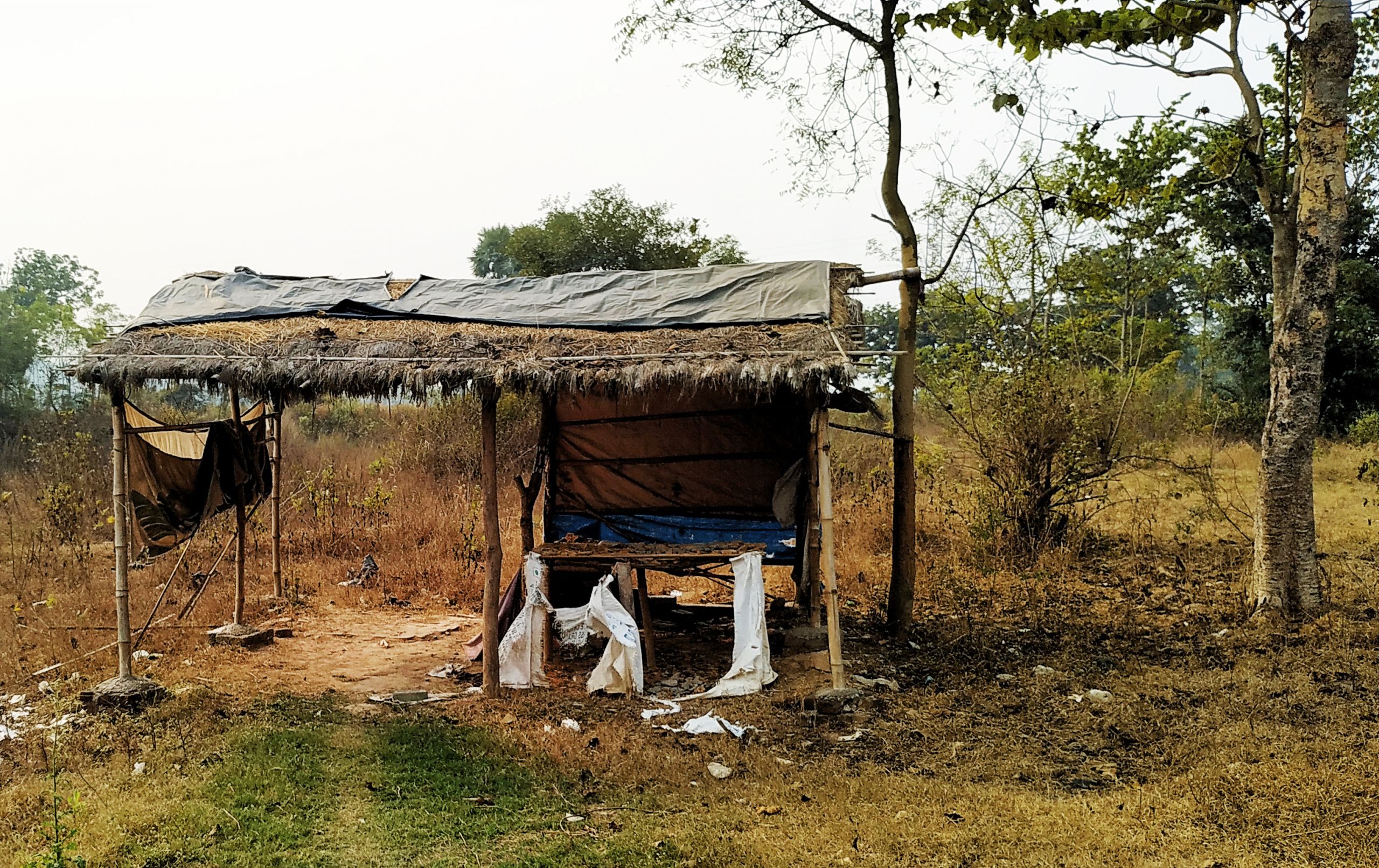
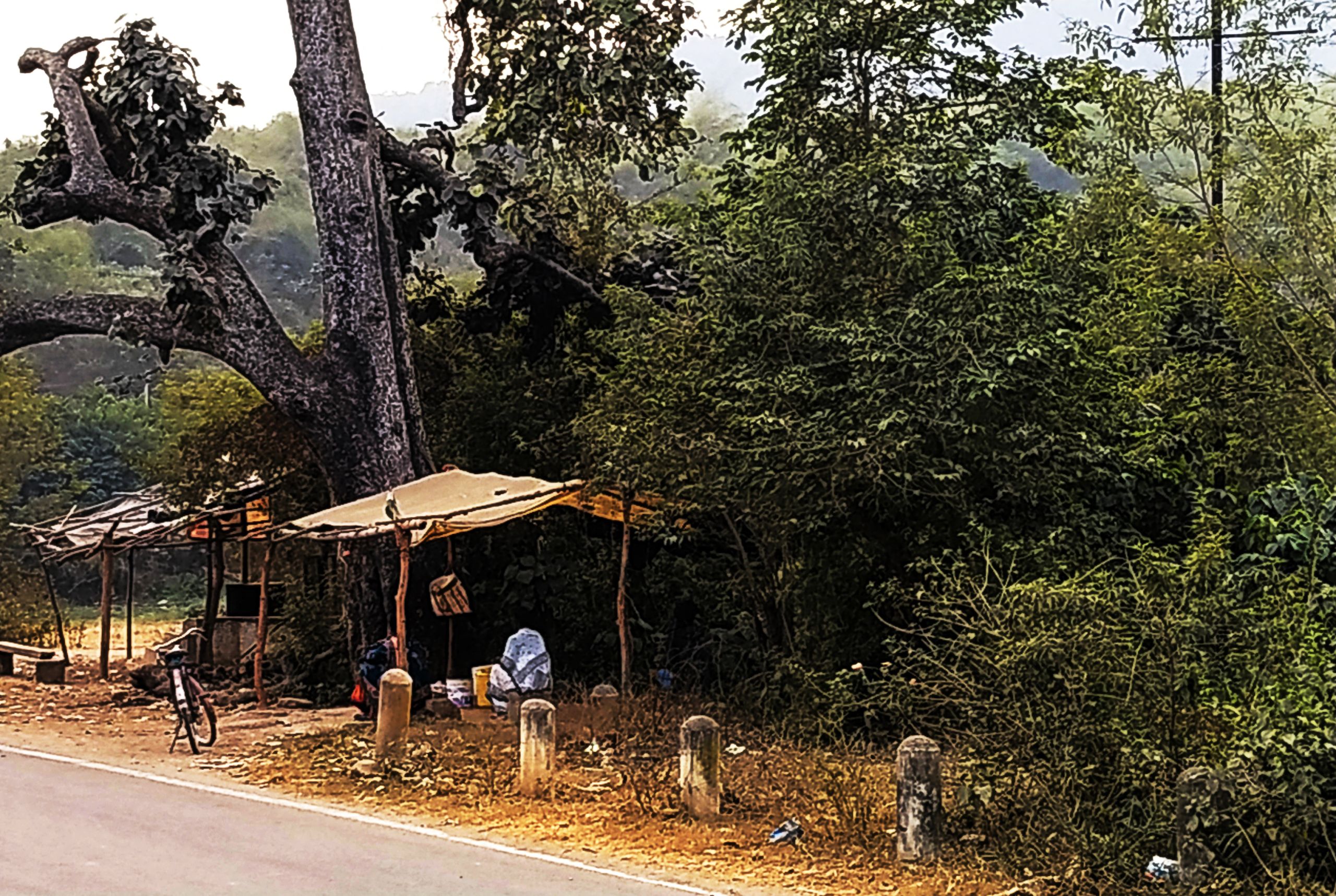
This woman, a handiya seller, another victim of the crisis, didn’t just see her sales plummet, but become negligible over the last six months.
Previously, she used to use four to five kilograms of rice for preparing the drink every day and earned 300-400 rupees. Now, the drink prepared with the same amount lasts three to four days.
Her daily income has reduced by more than half to just 100-200 rupees. “In our village, we didn’t have any coronavirus patient. But all my clients were gone within a month,” she sighed.

Selling alcohol - an uphill battle
Handiya, however ‘sacred’, is alcohol nevertheless. According to World Health Organization’s report of 2018, around 62.9% of all deaths due to liver cirrhosis were attributable to alcohol use.
Selling the same has special set of troubles. With Bihar already declaring itself a dry state, NGOs have demanded the adjoining state to follow the same course. Selling alcohol for widowed woman in her fifties with no one at home is an uphill battle.
“I thought I would get some sales in the Tusu fair (on the occasion of Makar Sankranti). This time most gram sabhas have decided to cancel fairs”.
“Most people who come here are tourists. Tourists don’t buy handiya. Locals do. Now even policemen chase us away and ask for bribes from us. We can bribe only if we earn, isn’t it?” she said.
She had not told us her name yet. On being asked, she refused to answer. Again.
Some cajoling and smiles later, the answer 'leaked' out from in between her lips. But that name, pregnant with ostracism for selling alcohol, despair during and after lockdown and resilience to keep earning, demanded secrecy.
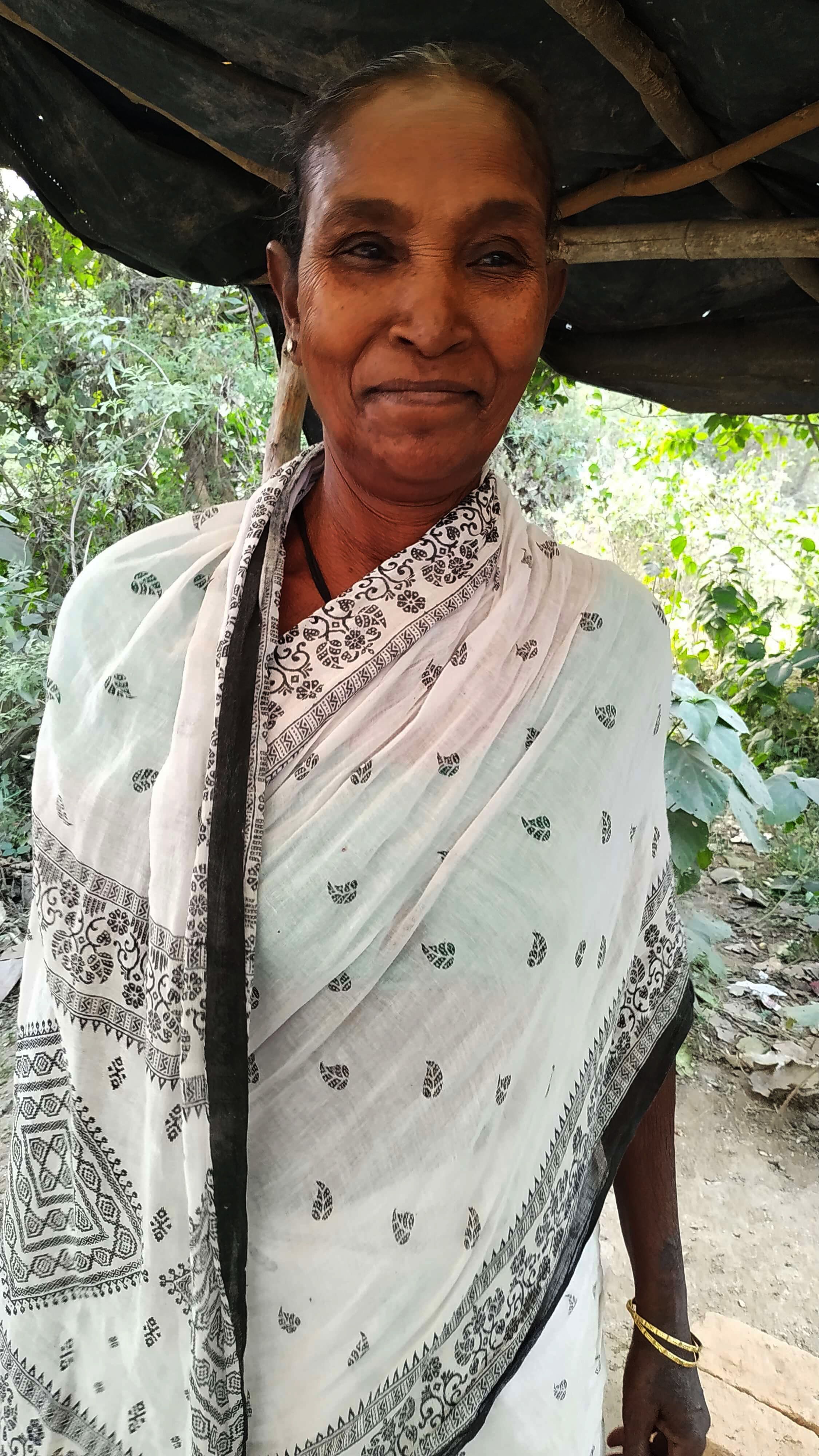
“What would you do knowing my name?” she replied, smiling
“What would you do knowing my name?” she replied, smiling
She travelled 8 km away from her village to keep it a secret, setting up a small shack - a testimony of the mess the pandemic has made, depriving people of Jharkhand of their livelihood, fairs and above all, their liberty to tell their names.
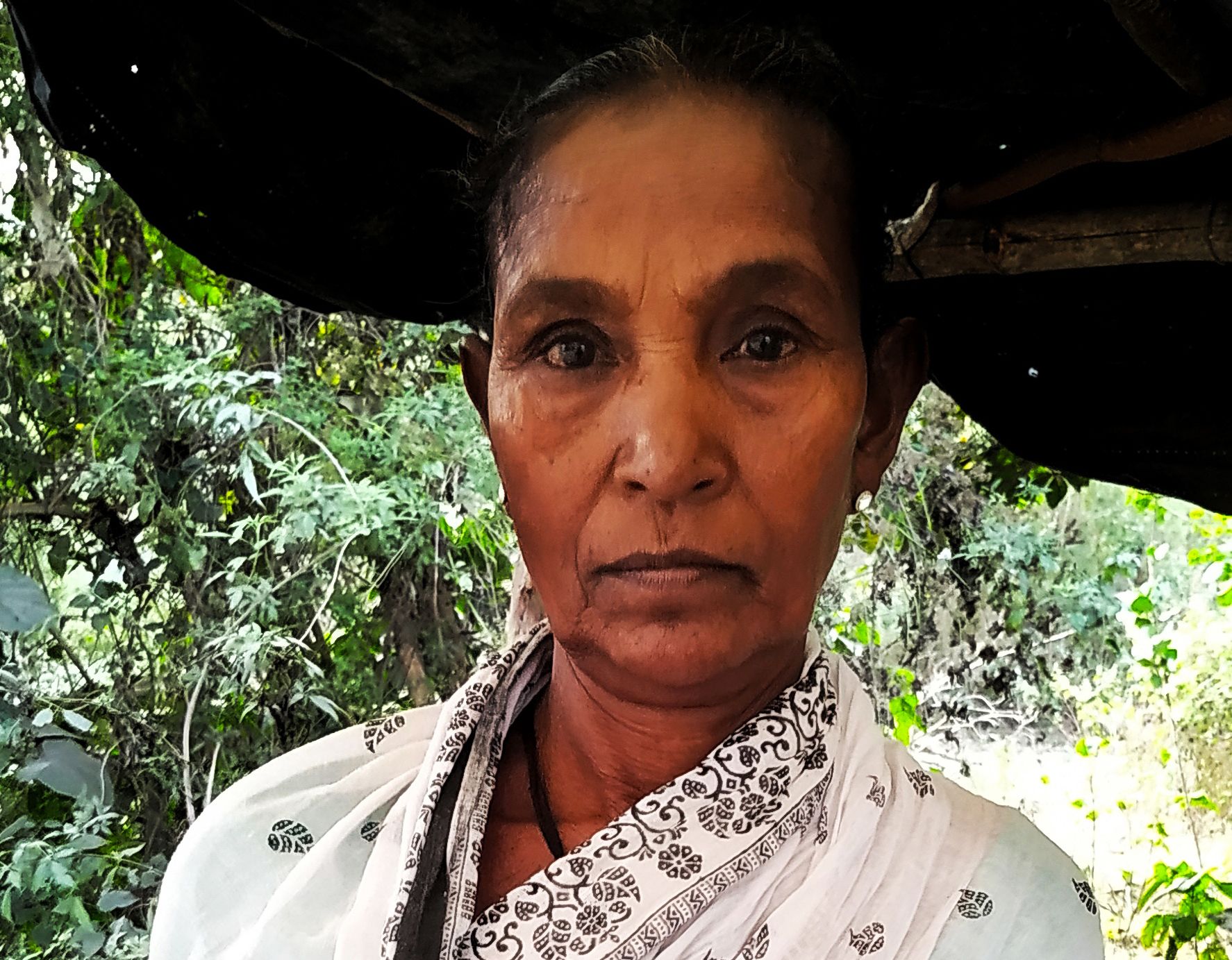
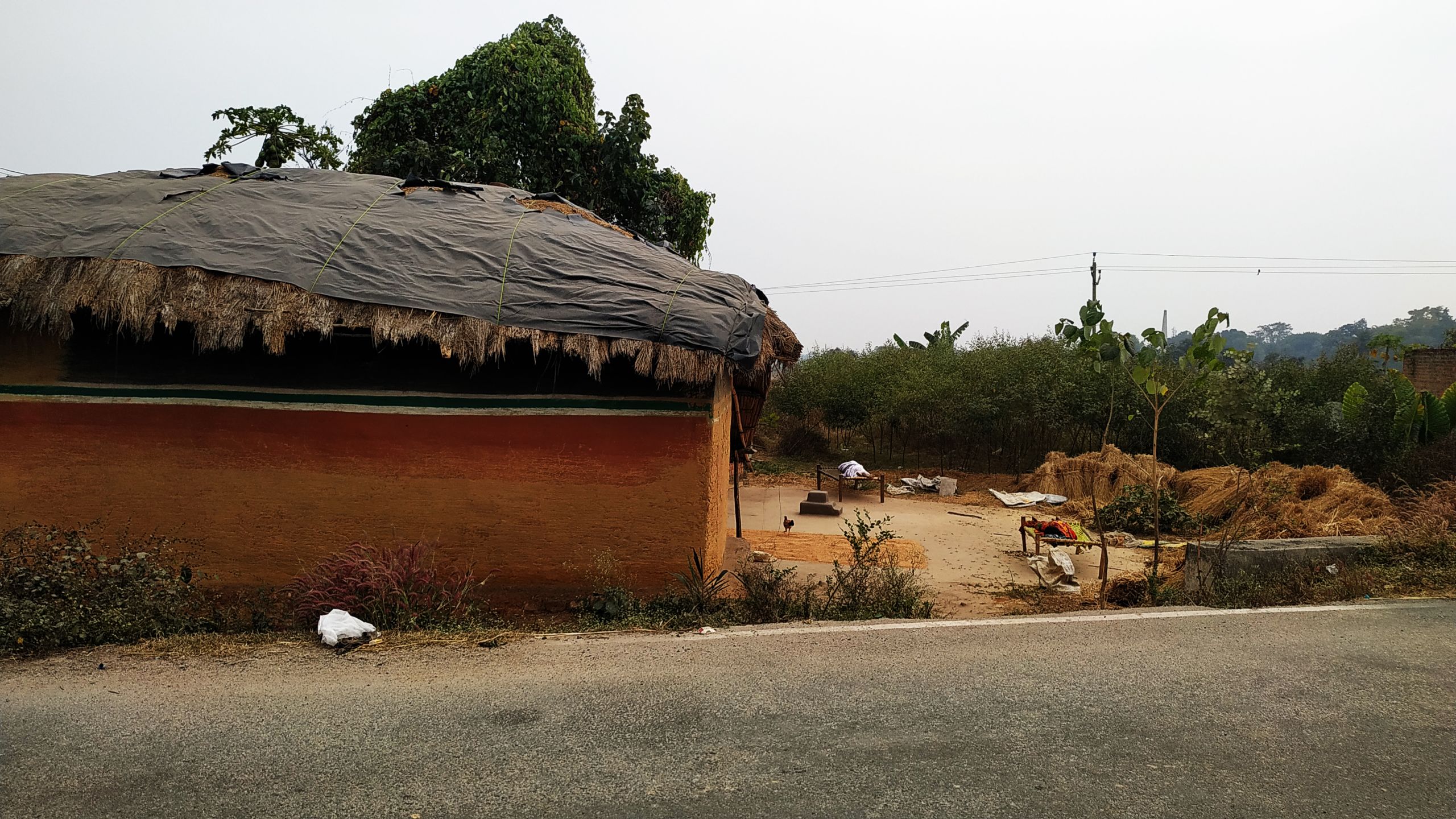
As per 2011 census, scheduled tribes constitute over 26 percent of Jharkhand’s population. The pandemic has only aggravated their miseries as many people are forced to sell alcohol on spots away from their villages.

